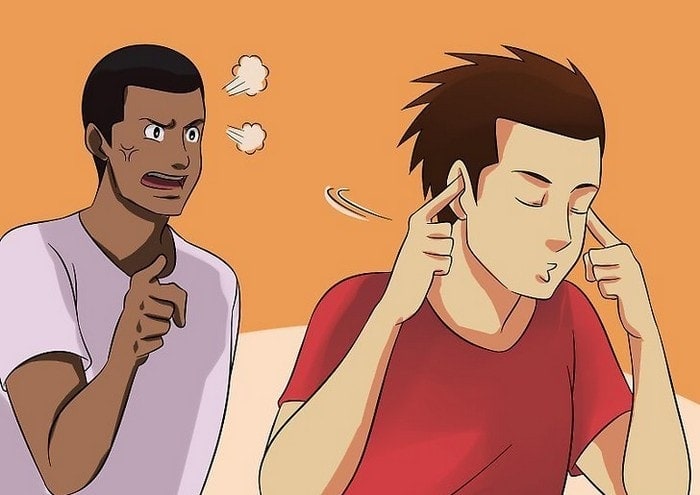
Breaking Down 10 Barriers to Critical Thinking

Discover the 10 most common barriers to critical thinking and learn how to overcome them From egocentric thinking to laziness, this article will help you break down the obstacles that hinder your ability to think critically in any situation
Having strong critical thinking skills is essential not only in academics and business, but also in everyday life. These skills are crucial to achieving success in all areas of life, including decision-making, maintaining positive relationships, problem-solving, and approaching situations with a detailed and thoughtful perspective. As many have noted, possessing strong critical thinking skills is one of the key ingredients to achieving personal and professional growth.
Having the ability to come up with viable and unique solutions to both regular and outlandish business problems is an essential soft skill. While some individuals may possess inherent critical thinking capabilities, these skills can also be enhanced through various learning, training, and development programs, as well as mind-sharpening practices like meditation.
Related: Marketing Mix Of Lamborghini – Lamborghini Marketing Mix
Meaning of Barriers to Critical Thinking
Barriers to Critical Thinking can take on many forms and can greatly impede an individual's personal and professional growth. These hindrances can limit an individual's ability to thrive in a business setting and hinder their overall effectiveness. In order to overcome these barriers, it is essential for individuals to first recognize and identify them.
10 Barriers to Critical Thinking
#1 Egocentric nature and thinking patterns:
The natural tendency towards egocentric behavior can be a significant barrier to critical thinking. This characteristic flaw often makes it difficult for individuals to empathize with others and understand their problems. It can be challenging to overcome this barrier as it is deeply ingrained in one's personality, despite efforts to change. Those with this trait struggle to evaluate the perspectives and emotions of others, making it challenging for them to work effectively in a team setting.
#2 Group Thinking:
Individuals in a group tend to succumb to group thinking, which is a detrimental barrier to critical thinking. This results in individuals lacking their own opinions or decisions in any given situation. Overcoming this barrier requires group members to challenge each other and formulate their own thoughts, opinions, and ideas. The adage, 'Too many cooks spoil the soup' is a perfect representation of this barrier as there is no independent action taken by individuals in a group.
Related: 4 Barriers to Communication and How to Overcome them?
#3 Drone Mentality:
Lack of focus, also known as Drone Mentality, can hinder one's ability to actively participate in important meetings and discussions. This can happen unexpectedly and to anyone, ultimately impeding critical thinking. Unfortunately, monotonous daily routines can contribute to this phenomenon.
To combat Drone Mentality, managers and the HR department should provide stimulating tasks and motivational incentives to keep employees engaged and interested.
#4 Social Conditioning:
Most of us tend to limit our thinking within familiar boundaries and avoid exploring ideas beyond our usual scope. This is often due to societal norms and expectations that dictate how we should think and behave.
Stereotyping and making assumptions about people and things due to social conditioning can hinder critical thinking in the workplace. Overcoming this barrier requires individuals to develop cultural and social awareness.
#5 Biased nature and experiences:
Having a personal bias is one of the biggest Barriers to Critical Thinking as its curbs and prohibits a person from making decisions that are fair, open-minded, and transparent.
The use of confirmation bias hinders individuals from utilizing logical reasoning, their experiences, and common sense to make informed and valid decisions.
#6 Work pressure:
Amidst the pressures of stringent deadlines, critical thinking skills can sometimes become compromised. However, it is also possible to hone and develop these skills even in the face of tight time constraints. Often when faced with short timelines, we may be tempted to complete tasks without strategic planning or long-term vision, hindering our ability to think critically.
#7. Arrogance:
Having an arrogant attitude can greatly impede one's ability to think critically. It leads to a closed-minded perspective, causing the individual to believe they already know everything and have no need to continue learning.
Arrogance makes the person fail on a long term basis as he has closed his channels of learning and is unable to assess the rewards and benefits of critical thinking.
#8 Stubborn Nature:
An individual's stubborn nature can be a hindrance to critical thinking, as they may be unwilling to consider alternative perspectives and ideas. This type of barrier is particularly problematic in the corporate world, where adaptability and flexibility are key traits for success in a constantly changing environment.
It is essential for individuals in the business world to remain open-minded and willing to embrace change. This means letting go of any rigid beliefs and understanding that the industry is constantly evolving at a rapid pace. Flexibility and adaptability are key traits necessary for success in this dynamic environment. Additionally, employers should consider implementing strategies to boost their employees' energy levels, as this can lead to increased productivity and overall success for the company.
#9 Fear:
The impact of fear on an individual can be detrimental to their personal and professional growth. It can hinder critical thinking, reduce confidence, and limit creativity. Fear can prevent individuals from thinking outside of the box and developing innovative ideas and strategies.
Fear can arouse out of the various reasons such as anxiety, depression, self-esteem issues, and other such personal reasons affecting a person’s professional life as well.
#10 Laziness:
In order to effectively engage in critical thinking, individuals must be willing to invest time and effort into conducting thorough research and studying relevant literature. Additionally, a growth mindset that embraces learning and new experiences is crucial. However, laziness can serve as a significant obstacle to the development of these important skills.










